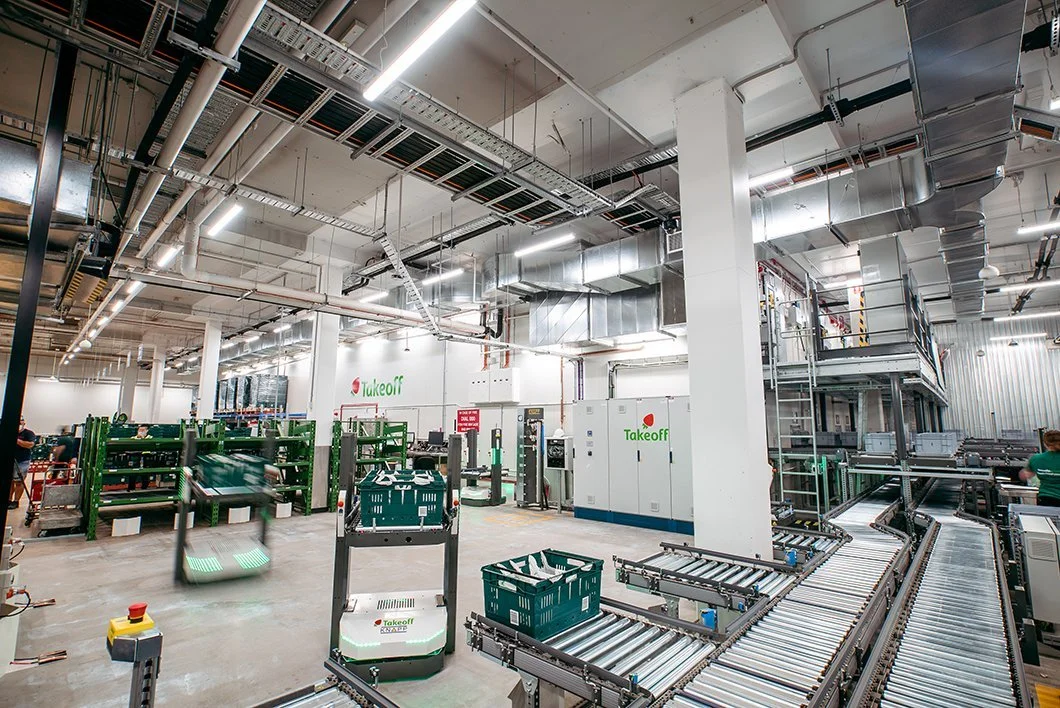Two-hour delivery gaining "tremendous traction"; Expanding store automation - Albertsons CEO
Albertsons rode inflation and market share gains to a solid first quarter earnings performance, posting a 6.8% increase in identical store sales, excluding fuel, and 28% growth in digital sales, according to a press announcement and earnings call Tuesday morning.
The grocer raised its guidance for fiscal year 2022. It now projects a 3% to 4% increase in identical store sales — up 100 basis points from the previous guidance — and adjusted earnings per share of $2.80-$2.95, up 10 cents from the previous outlook.
CEO Vivek Sankaran said during Tuesday’s earnings call that foot traffic to stores and in-store transaction count both increased during the quarter as many shoppers continue to prioritize eating at home.







Albertsons’ better-than-anticipated Q1 results show that consumers are sticking with the supermarket operator even as inflation and high gas prices continue to burden their wallets.
Sankaran said Tuesday that shoppers are actively trading down from national brands in categories like deli meats, rice and oils, often driving them to Albertsons’ private label brands. At the same time, they’re continuing to buy premium options in select categories that matter to them.
He also observed that high prices at restaurants and the fact that millions of shoppers continue to work from home are helping to drive spending at stores. Shoppers are picking up prepared foods as well as the ingredients they need to cook at home, he said.
To capitalize on these trends, Albertsons is expanding its selection of grab-and-go offerings and prepared foods. Its ReadyMeals line of fresh meals is currently available at 600 stores and will expand to 1,100 locations by the end of the fiscal year. The grocer has also recently introduced a sandwich program at its stores and is seeing elevated sales in salad offerings.
To help drive sales of meals and ingredients, Albertsons is promoting its recently updated app, which offers personalized recommendations for shoppers, Sankaran said.
“Everything we’re doing is driving stickiness,” he said.
The company’s digital sales increase was driven by an expansion of services, including pickup, which is now available at more than 2,000 stores, and two-hour “express” delivery, which is now available from 74% of households served by Albertsons, Sankaran noted.
Two-hour delivery has gained “tremendous traction” with shoppers recently, the CEO noted, and relies primarily on stores for fulfillment to help keep costs down. To help facilitate faster service, Albertsons is adding warerooms to stores that provide extra shelving for fast-moving items that go into online orders. Albertsons is also expanding its use of automated micro-fulfillment centers, Sankaran said, though he did not provide specifics.
Albertsons noted in its earnings release that the value of its company-owned real estate has increased substantially. A recent appraisal by a third-party firm found that the value of its holdings has grown by $2.5 billion since its last appraisal in 2019, to $13.7 billion.
The updated real estate appraisal was part of the strategic review process that Albertsons initiated earlier this year. Company officials said that the rest of the review is still in process and did not provide a timeline for when the process might wrap up.
